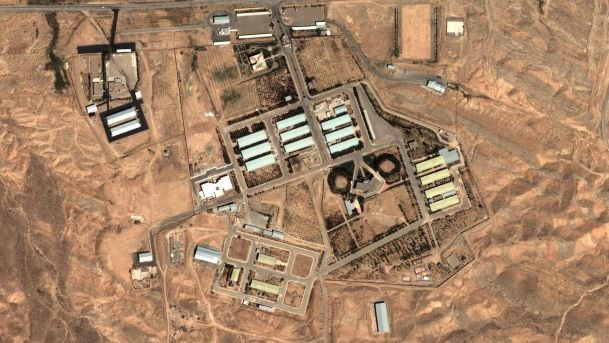The Wall Street Journal reported Monday that the Obama administration has concluded that uranium particles discovered last year at a secretive Iranian military base likely were tied to the country’s past, covert nuclear weapons program, a finding that contradicts Tehran’s longstanding denials that it was pursuing a bomb.
A test of uranium samples taken from soil at Iran’s Parchin military complex reveals the extent of Iran’s quest to develop nuclear weapons.
Traces of man-made uranium were found at the Parchin facility, southeast of Tehran, by investigators from the United Nations’ (UN) International Atomic Energy Agency (IAEA), as part of an investigation tied to the controversial nuclear deal reached last July between Iran and global powers.
The Iranians have claimed that the site was used for developing and testing conventional weapons. The particles were the first physical evidence—on top of satellite imagery and documents from defectors—to support the charge that Iran had been pursuing a bomb there, the WSJ reports.
The Obama administration has refrained from relating to the IAEA’s findings.
An Iranian government spokesman on Saturday denied uranium had been found at Parchin and said a 2005 report put out by the IAEA found no “unusual activities” at the base.
Israel, Saudi Arabia and other countries in the Middle East fear that Iran could quickly resume nuclear weapons work when the deal expires, or do it covertly beforehand.
IAEA officials said in interviews that during its investigation, conducted from July through December, Iran didn’t allow the agency to interview top nuclear scientists believed to have overseen nuclear weapons development. Iran also claimed that most of the documents amassed by the agency were forged.
The man-made uranium found at Parchin, which has only low-levels of fissionable isotopes, can be used as a substitute for weapons-grade materials in developing atomic bombs, according to nuclear experts. It can also be used as component in a neutron initiator, a triggering device for a nuclear weapon.
Under the nuclear deal, Iran has committed to allowing the IAEA access to all of its suspected nuclear sites. But it isn’t clear if Iran would allow inspectors back into Parchin for further testing because it is a military base. Iranian officials have said last year’s visit wouldn’t be repeated.
By: United with Israel Staff
Do You Love Israel? Make a Donation - Show Your Support!
Donate to vital charities that help protect Israeli citizens and inspire millions around the world to support Israel too!
Now more than ever, Israel needs your help to fight and win the war -- including on the battlefield of public opinion.
Antisemitism, anti-Israel bias and boycotts are out of control. Israel's enemies are inciting terror and violence against innocent Israelis and Jews around the world. Help us fight back!
See our Privacy Policy